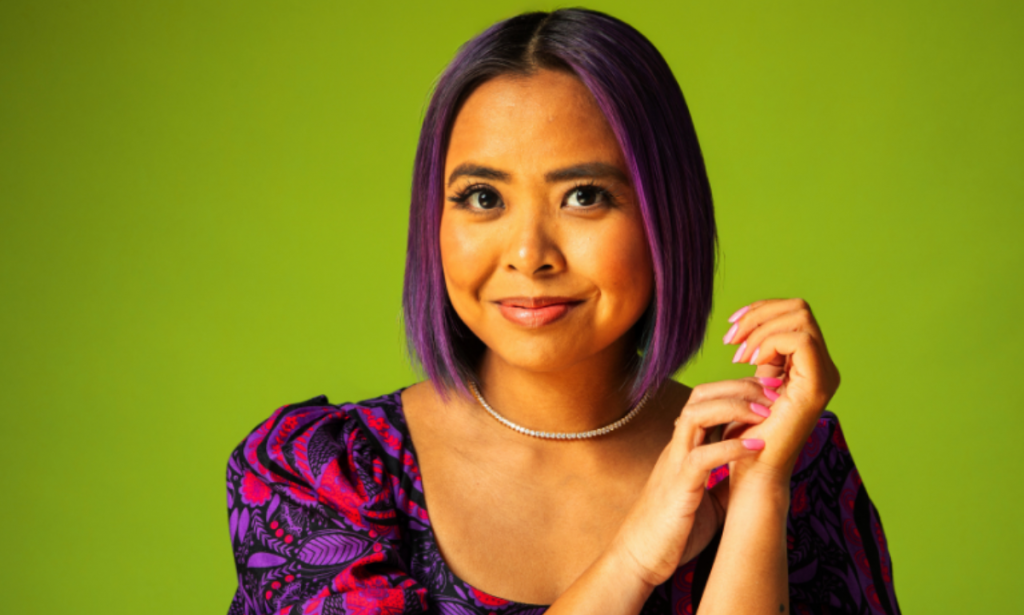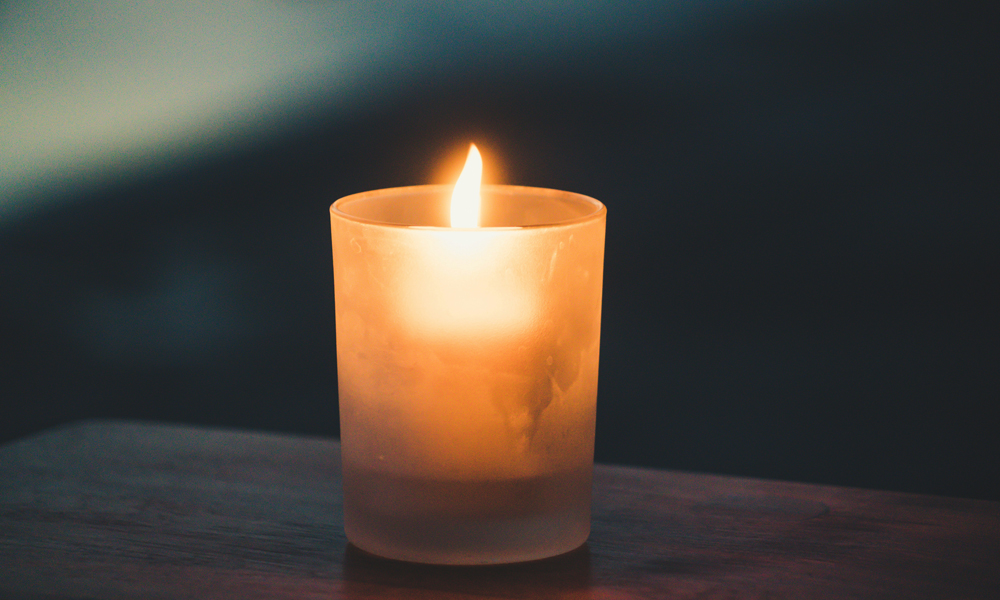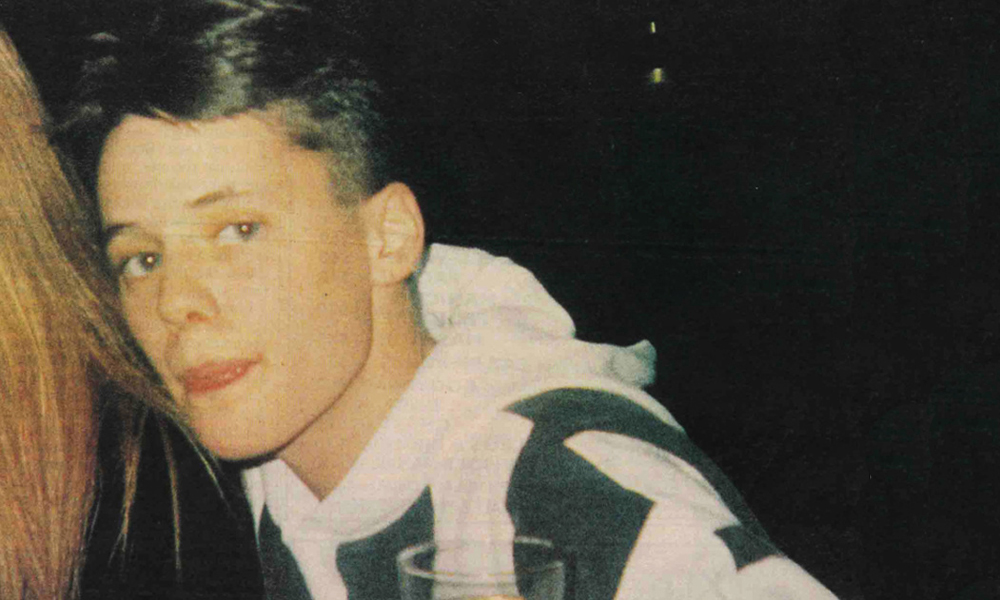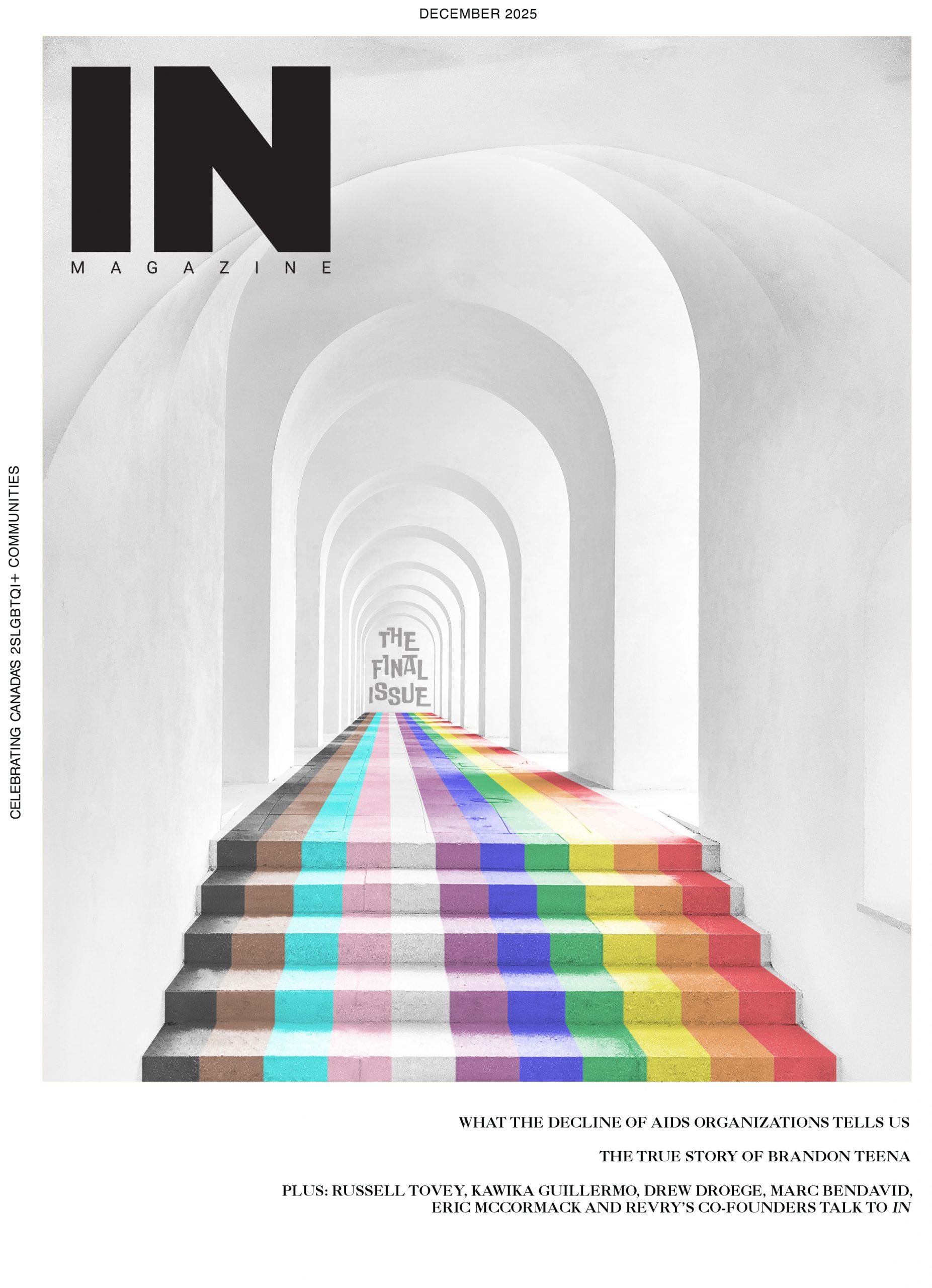Erika Casupanan turns a Survivor win into a mission—rewiring visibility through candid storytelling, queer leadership, and her podcast Happy to See Me.
I got to sit down with Erika Casupanan—yes, that Erika, the Survivor 41 winner—and within five minutes we were two giddy Survivor nerds swapping Blue Jays takes and admitting that, at live games, we’re the chatty ones half‑watching with one eye on our phones. We laughed about those cruel 8:00 p.m. starts (why?) and the stubborn fact of getting older: “You mean I have to stay up until midnight?” she joked. The banter was easy, but it also did what great icebreakers do: it opened a door. Because once we stepped through, Erika showed me exactly why she’s one of the most important voices reshaping visibility right now—on TV, on stages, and inside the quiet parts of people’s lives.
Breaking the mold, on purpose
If you were to picture the prototypical Survivor winner, Erika knows she might not appear in your mind’s eye. “You’re probably not picturing a five‑foot‑tall Filipino immigrant with a short purple haircut,” she says. Which is exactly why her win thrills me. It wasn’t an accident or a fluke; it was intentional, strategic, human. She manifested it long before we got a chance to witness it.
Before the island, Erika spent a decade in corporate PR and marketing. She’d heard the familiar rules handed to women who want respect at work: be assertive, drop the uptalk, stop saying like, look the part. On the island she turned that prescription inside out. “I wore my hair in little pigtail buns… I don’t wear headbands in real life, but I did on the show,” she told me. “I did all of these visual signals to make myself look smaller and less threatening.” Then she weaponized underestimation—not by becoming someone else, but by staying entirely herself.
It’s easy to call that savvy. It’s braver than that. Erika turns the narrative that sidelines women—especially Asian women—into forward motion. “The only way to challenge the stereotypes is to move forward as I am,” she said. “To show that I’m a multidimensional person… there’s not one way to be successful or to look strong.” As someone who’s watched every single season (dozens of times each), I can say this flat‑out: Erika’s win didn’t just break a mold; it made a new one.
From ghostwriter to the mic
Erika’s career arc reads like a mirror turned around. She used to be the one writing other people’s speeches and prepping them to shine. Now she’s the person on the mic, and if her audiences are any indication, she’s exactly where she belongs. “A lot of the time you can give somebody a speech… but people just want to be reassured that they can do it,” she said of her PR days. “Now, when I do it on my own, it’s a lot of me reassuring myself that I have the knowledge and the expertise.”
Her keynote topics are born from real requests and real obstacles: people‑first leadership, harnessing the underdog advantage, reframing imposter syndrome. She’s not interested in barking orders (Survivor teaches us how poorly that works). Instead, she tells stories—about managers who mattered, about moments that almost broke her but didn’t—and she lets audiences see themselves in those stories. “No one wants to get talked at,” she said. Amen.
One of my favorite detours in our chat came when a room full of finance guys asked her, “How do you win Final Tribal Council?” Erika grinned and reframed it: imagine someone pointing at you and claiming your decisions as their own. Would you vote for them? “They basically just took away whatever agency you had,” she said. People want to feel seen and included. Leadership is not a volume contest; it’s a validation practice.
“Underestimated champion” isn’t just a tagline
Erika didn’t always have the language for being underestimated, but she knew the feeling. “I’ve always looked a bit different,” she said, matter‑of‑factly—purple hair since 2017, bright colors, a point of view. Her audience gave the feeling a name: underdog. When people reached out after Survivor and said, I see myself in you, Erika recognized a pattern and a purpose.
Here’s what I love about how she thinks: being underestimated isn’t a pity‑plot; it’s a power source. “It’s great in terms of keeping yourself motivated and having self‑compassion when people might not believe in you right away,” she told me. And if you’re leading others? Start with empathy. Assume different obstacles. Design for different journeys. That lens shows up everywhere in her work now—from the questions she asks to the rooms she wants to stand in.
A late bloomer who arrived right on time
Erika calls herself a late bloomer, but she doesn’t believe anyone is actually late. “You came out as early as you possibly could,” she says—a line I’ve been chewing on since she said it. She grew up in a traditional, strict Asian household. As a teen there was no space to explore anything—“I can’t even go on dates with boys; how can I even think about girls?”—and as a young professional she was laser‑focused on achievement. Desire doesn’t disappear in those conditions; it waits for air.
When the air finally arrived, so did Erika’s clarity. “It wasn’t really until I had the time and the space and the certainty in myself… that I was able to even have the ability to access this part of me.” Then came the public part, which is its own thing entirely. “All of a sudden, I started getting requests to go on all the sapphic podcasts,” she said, grateful and overwhelmed at once. “I was like, I’m not ready to do this yet… I’m new here.”
That’s the part that made me want to high‑five my laptop screen: she gave herself permission to be in process. “You’re building the plane and flying it,” she laughed. Representation often asks queer people to be experts on their identities in public. Erika insists on being honest instead. It’s not just brave—it’s generous.
The podcast that opens a door and leaves it open
The most Erika thing Erika could do after Survivor was start a show called Happy to See Me. The title is cheeky on purpose; if you watched her season, you know the edit didn’t exactly spell out her dominance from the jump. So she hit record. She first laid down an episode a month or two after she won and then, in a move that says everything about her care for story, held it for a year. When it finally dropped, the responses flooded in—especially from Asian women and Filipinos—people who felt underestimated and unseen. “I really needed to hear this,” they told her.
Now Happy to See Me is an inspirational chat show by design, a safe space for candid conversations and a‑ha moments. Erika’s criteria for guests is a mission statement: would someone early in their journey—building confidence, moving through self‑doubt, working past imposter syndrome—get something out of hearing this person? If the answer is yes, they’re in.
One conversation she can’t forget is with Taylor Lindsay‑Noel, known online as @AccessByTay. After a gymnastics accident left Taylor quadriplegic, her mother—a single mom—went into fight‑or‑flight and rebuilt the world around her. When Erika asked whether Taylor felt resistance to a new identity—“I know there are people in wheelchairs, but that’s not me”—Taylor admitted no one had asked her that before, and the grief of shifting identity was real. That exchange still sits with me. Erika doesn’t just ask empathetic questions; she asks the kind that honor someone’s interior life.
And because Erika believes in community as much as content, guests become friends, collaborators, champions. As we spoke, she had just recorded her 100‑plus‑something episode (she laughed trying to remember the exact number). The point is consistency. The point is care. The point is that every Monday, someone who has felt underestimated hears a voice say: you’re not alone, and you’re not late.
The baseball aside I can’t resist
Let me circle back to the baseball thing, because it’s Erika in miniature: thoughtful, funny, specific. “Baseball is objectively boring,” she said, deadpan, citing a study about how defense and pitching are so good that there’s only about 15 minutes of actual action in a three‑and‑a‑half‑hour game. (I cackled.) And yet she loves it. She understands it. That’s Erika’s magic trick: she can hold two truths at once—it’s slow and I love it—and somehow that makes room for everyone else’s contradictions, too.
The work, right now
Between the mic and the stage, Erika is building an ecosystem of encouragement with very sharp edges. She speaks about people‑first leadership in a time when the rules keep changing, and about how empathy isn’t soft—it’s structural. She teaches teams to find the “underdog advantage” when the room doubts them. She reframes imposter syndrome as proof you’re growing, not proof you don’t belong. And she does all of it in the language of stories, not sermons. “Ninety percent of any speech I do is sharing anecdotes,” she told me. The result? People walk out not feeling lectured, but seen.
And if you’re wondering whether Erika ever considered milking Survivor for the rest of time, she could have. She chose a harder path: take the million moments of a once‑in‑a‑lifetime win and build something that outlives the hype cycle. That, to me, is the difference between content and calling. That to me, is why we focused on her, because Survivor is only a moment in her story.
Why I’m happy to see her
I left our conversation buzzing. Not because she’s perfect—she’ll be the first to tell you that bombing is part of the process and that she’s had to roll with more than a few punches—but because she is intentional about how she shows up. She makes herself smaller when the situation calls for it, then claims her full size when it matters. She’s both the person who could make herself “less threatening” to move through a game and the person who now refuses to shrink so others can be comfortable. That’s not a contradiction. That’s growth—and it’s contagious. And to me, well, that is kind of perfect. Two things can be true at once, remember?
Listen, watch, follow (and feel seen)
If you’ve ever felt underestimated—or loved someone who has—there’s a Monday waiting for you. Erika’s podcast Happy to See Me is available wherever you get your podcasts and on YouTube. And if you want to keep up with her work (and the bright‑haired fits, bless), she’s most active on Instagram at @erica_cas. There are always a few tricks up her sleeve, and after talking to her, I’m convinced they’re less tricks and more invitations: to believe you’re not late, to build the plane while you fly it, and to keep moving forward as you are.
Because the only way to challenge the stereotype is to keep showing up as yourself. And Erika Casupanan is doing exactly that—beautifully, boldly, and in a way that leaves the door open behind her for the rest of us.






POST A COMMENT